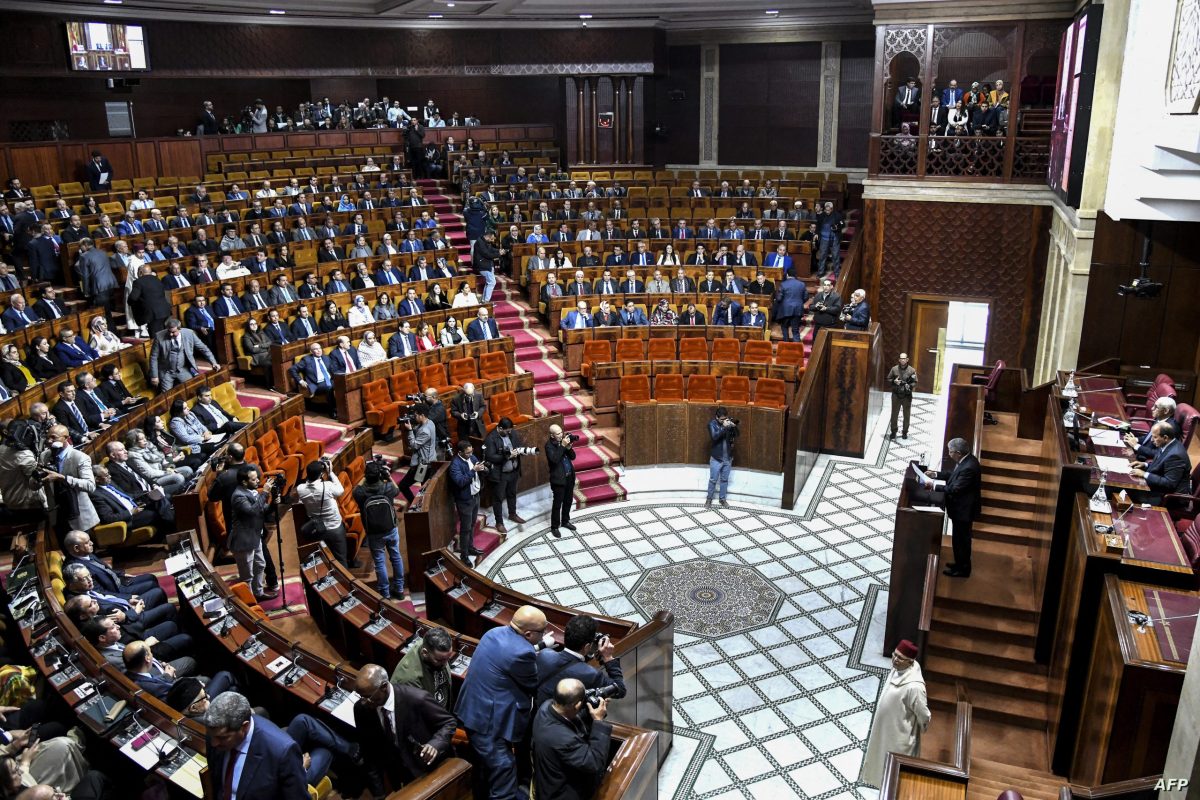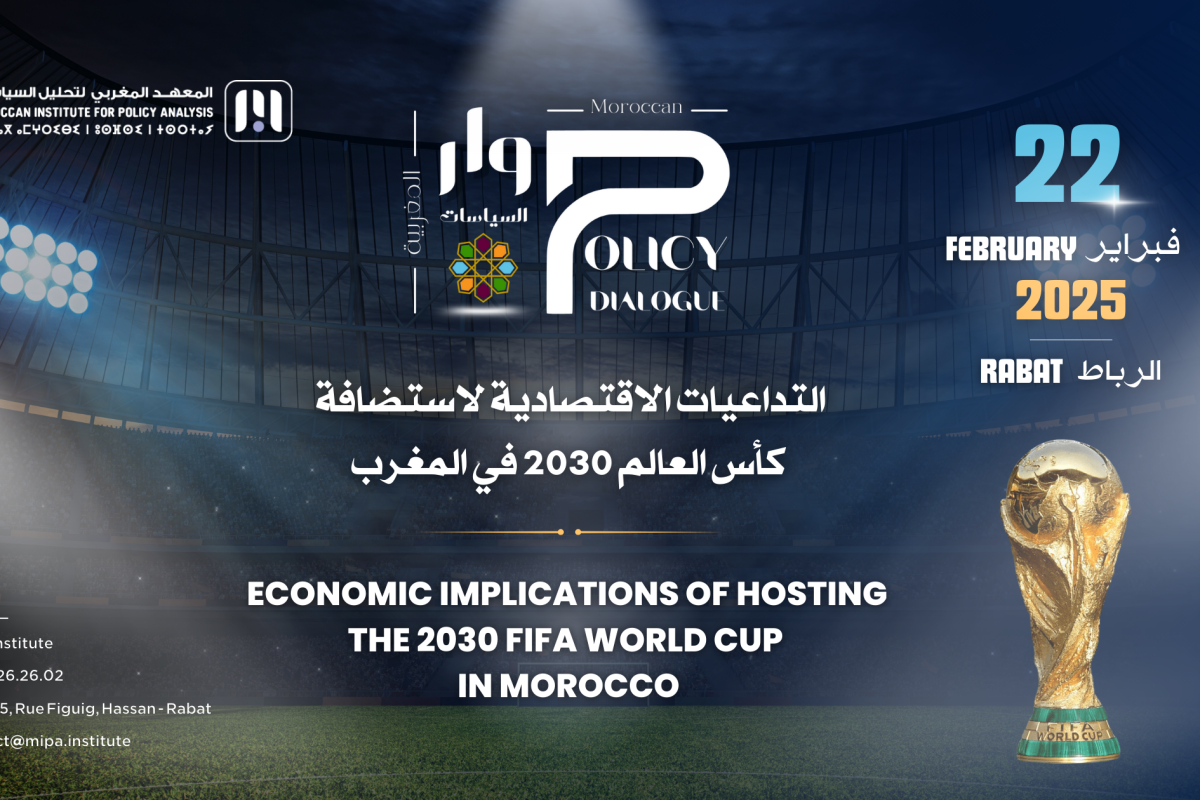[vc_row][vc_column][vc_column_text]
New AJCS book examines the Jihadism in Morocco in its local and global context

Download the book
Al Jazeera Centre for Studies is releasing a new e-book on 1 January 2021 under the title, Moroccan Jihadists: Local and Global Debate, by Mohammed Masbah, the Director of the Moroccan Institute for Policy Analysis and Associate Fellow at Chatham House in London.
Through the book, Masbah examines the contexts and justifications of Moroccans who shift towards religious violence and join “extreme Jihadist” groups and proposes an interpretive framework to explain Moroccan Jihadism that combines international and domestic factors.
The book presents the international political environment and its relationship with extremism and the globalisation of terrorism, shedding light on the Moroccan political environment in particular and its security, social and religious approach to fighting Jihadist organisations. Furthermore, the book studies Moroccan Jihadist currents themselves, revealing their ideas, organisations and the mechanisms of their activity to present a more accurate image of their environment and the reasons behind their striking numbers in the transboundary system of Jihadist groups and organisations.
By following the establishment of Moroccan Jihadist trends, the author highlights the relationship between the Moroccan Islamist trend in general and the Muslim Brotherhood of Egypt in the 1950s and 1960s. He deduces that Moroccan Islamists were influenced psychologically and intellectually by the security suppression, imprisonment, torture and displacement of their Egyptian counterparts, and thus lived psychological adversity in their own society despite not actually having suffered or been persecuted.
The book also talks about Salafist Jihadism, discussing its relationship with that of the Gulf countries and the division that followed the second Gulf war, giving Moroccan Salafist Jihadism an opportunity to have its own reference and independence.
Then, Masbah delves into the impact of the era of Afghan Jihad on the growth of the Jihadist tendencies of Moroccan religious violence groups, describing it as a “historical opportunity” for the birth of “global Jihadism” in general and Moroccan Jihadism in particular because – according to him – it provided a “suitable background for the emergence of a new generation of enthusiastic volunteers that combined humanitarian relief work with combat activity.”
From the Afghan situation that left its mark on Jihadist trends to what transpired in Iraq after the 2003 US invasion, Iraq also became a suitable environment that polarised Jihadist groups looking to fight; and these included Moroccan groups.
The book does not overlook the role of the 9/11 attacks that were attributed to al-Qaeda. In fact, it argues that these events made the organisation and its leader, Osama bin Laden, more important to Moroccan Jihadists and rendered this violent approach an attraction factor to them.
In addition, the author touches on the most prominent event in the history of Moroccan Jihadist groups, the Casablanca bombings that took place on 16 May 2003, and the deaths, injuries and fear they caused. After revealing the details of this event, he investigates the perpetrators; their ages and educational, social and economic backgrounds; the geographic areas they came from and lived in; and the quality of facilities and services and the presence of authorities there. He makes the observation that the overwhelming majority of them are about 30 years of age, and grew up in marginalised environments that suffer from poverty, deprivation and high rates of unemployment and lax security. This created a suitable environment for the emergence and prosperity of Jihadist groups and allowed them to expand from their local environments to become trans-boundary.
After depicting the Casablanca bombings and analysing their details and dimensions, the author explores the features of the new strategy Morocco adopted for dealing with Jihadist groups, highlighting the security authorities’ tighter grip, the launch of projects for the economic development of marginalised areas, the adoption of a new religious policy known as “the restructuring of the religious field” in aims of institutionalising this sphere and annexing it to the state’s sphere of influence and control, and the king’s monopoly of religious symbolism as amir ul-mu’minin or the “Leader of the Faithful.”
The book continues tracking the Moroccan Jihadist situation up to Arab Spring, which the author calls “the third paradigm shift of Jihadism,” starting from 2011 with militarisation and the violence that followed especially in the Syrian revolution. These events led to the birth of a third generation of global Jihadism. The author discusses the aspects of this issue through the portrayal of the tools of polarisation and the motives and reasons that explain the growth of this phenomenon, the analysis and description of the armed groups that had Moroccan members, and the state’s approach towards Moroccan fighters abroad. He eventually deduces that Salafist Jihadism expanded its area of operation and gained with the Syrian revolution a fertile ground for mobilisation, training and a safe haven for hundreds of fighters of various nationalities including Moroccans. From this, the author gathers that the Jihadist phenomenon in Morocco is not isolated from the geostrategic dynamics that the Arab world experiences. Hence, he says that “the roots of global Jihadism stem from structural grievances that have been entrenched in the political and social environment for decades and thrive on both real and imagined grievances consisting of two aspects: Western dominance of the Islamic world, and the failure to build a model for the peaceful transfer of power in the Arab world.”
In addition, the current situation of the Jihadist trend in Morocco, according to Masbah, is experiencing relative decline as a result of the successive security strikes and the intellectual transformations of a number of its figures and members after imprisonment. Nonetheless, he points to a number of issues that he says have yet to be resolved such as the role and return of Moroccan fighters from hot spots after the end of the war in Syria, Jihadists’ resumption of activity after imprisonment, the capacity of Moroccan authorities’ strategy for dealing with the Jihadist phenomenon without falling into past mistakes.
Finally, the author concludes by discussing the pre-emptive security approach adopted by Moroccan authorities, maintaining that it successfully dismantled dozens of terrorist cells and thwarting a number of potential terrorist attacks but appears to have been unable to eliminate the sources of extremism as the conditions that produced the phenomenon of extremism continue to exist, especially economic and social marginalisation and political suffocation. He also asserts that the use of repression alone has not convinced many Jihadists to abandon their ideas. Thus, he argues that before attempting to treat the deep factors that produce extremism, it is important to understand the phenomenon in-depth because understanding precedes action. If this does not happen through analytical tools and an appropriate theory, addressing the phenomenon will remain dependent on the same limited approach.
[/vc_column_text][/vc_column][/vc_row]
Mohammed Masbah
Mohammed Masbah is the Founder and President of the Moroccan Institute for Policy Analysis (MIPA). He is a political sociologist whose work centers on public policy, democratization and political Islam, with a focus on North Africa. Dr Masbah is an Associate Fellow at Chatham House in London and adjunct professor at Mohammed V University. He was previously a non-resident scholar at the Carnegie Middle East Center, and a fellow at the German Institute for International and Security Affairs (Stiftung Wissenschaft und Politik, SWP) in Berlin. Dr Masbah obtained his PhD in Sociology from Mohammad V University in Rabat. His dissertation examined the processes of radicalization and deradicalization of Moroccan Salafis since Casablanca bombings in 2003. His recent publications include: Moroccan Jihadists: Local and Global Dimensions, Al Jazeera Centre for Studies, 2021. Trust in Institutions Index 2020, Moroccan Institute for Policy Analysis, 2020. Rise and Endurance: Moderate Islamists and Electoral Politics in the Aftermath of the ‘Moroccan Spring’” in Islamists and the Politics of the Arab Uprisings: Governance, Pluralisation and Contention (Edinburgh University Press, 2018) Contact the author: m.masbah@mipa.institute


